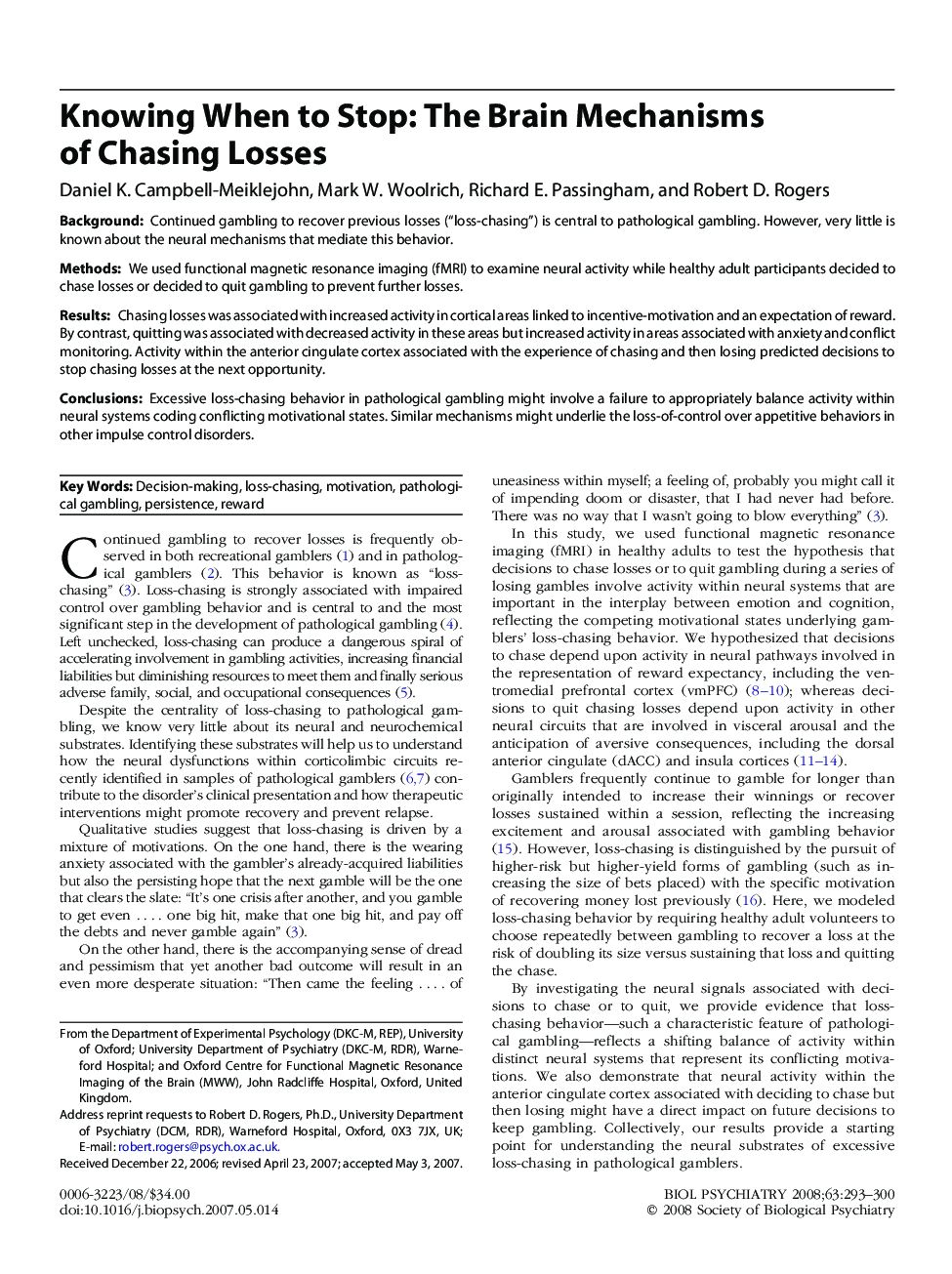| Article ID | Journal | Published Year | Pages | File Type |
|---|---|---|---|---|
| 4179463 | Biological Psychiatry | 2008 | 8 Pages |
BackgroundContinued gambling to recover previous losses (“loss-chasing”) is central to pathological gambling. However, very little is known about the neural mechanisms that mediate this behavior.MethodsWe used functional magnetic resonance imaging (fMRI) to examine neural activity while healthy adult participants decided to chase losses or decided to quit gambling to prevent further losses.ResultsChasing losses was associated with increased activity in cortical areas linked to incentive-motivation and an expectation of reward. By contrast, quitting was associated with decreased activity in these areas but increased activity in areas associated with anxiety and conflict monitoring. Activity within the anterior cingulate cortex associated with the experience of chasing and then losing predicted decisions to stop chasing losses at the next opportunity.ConclusionsExcessive loss-chasing behavior in pathological gambling might involve a failure to appropriately balance activity within neural systems coding conflicting motivational states. Similar mechanisms might underlie the loss-of-control over appetitive behaviors in other impulse control disorders.
